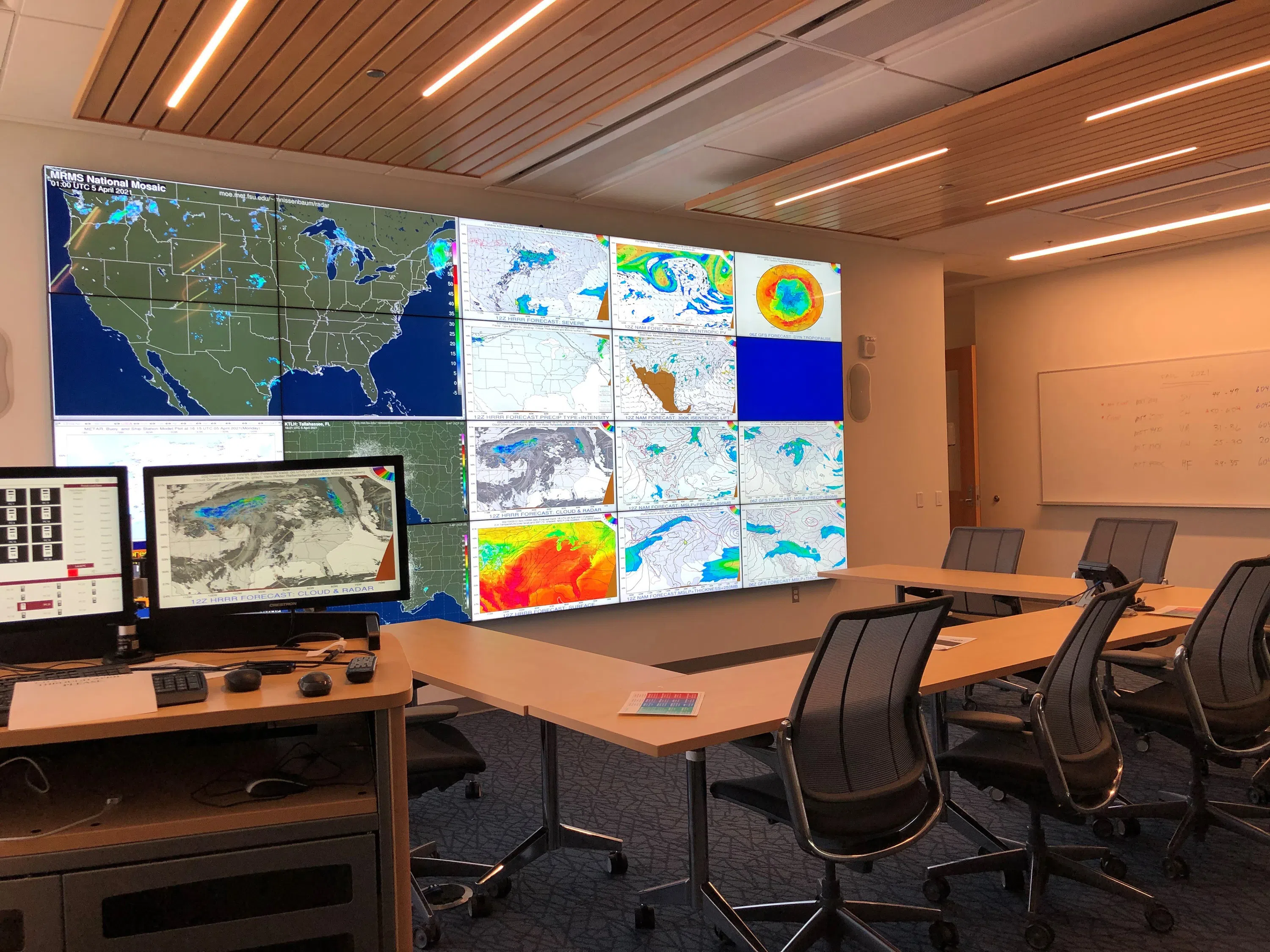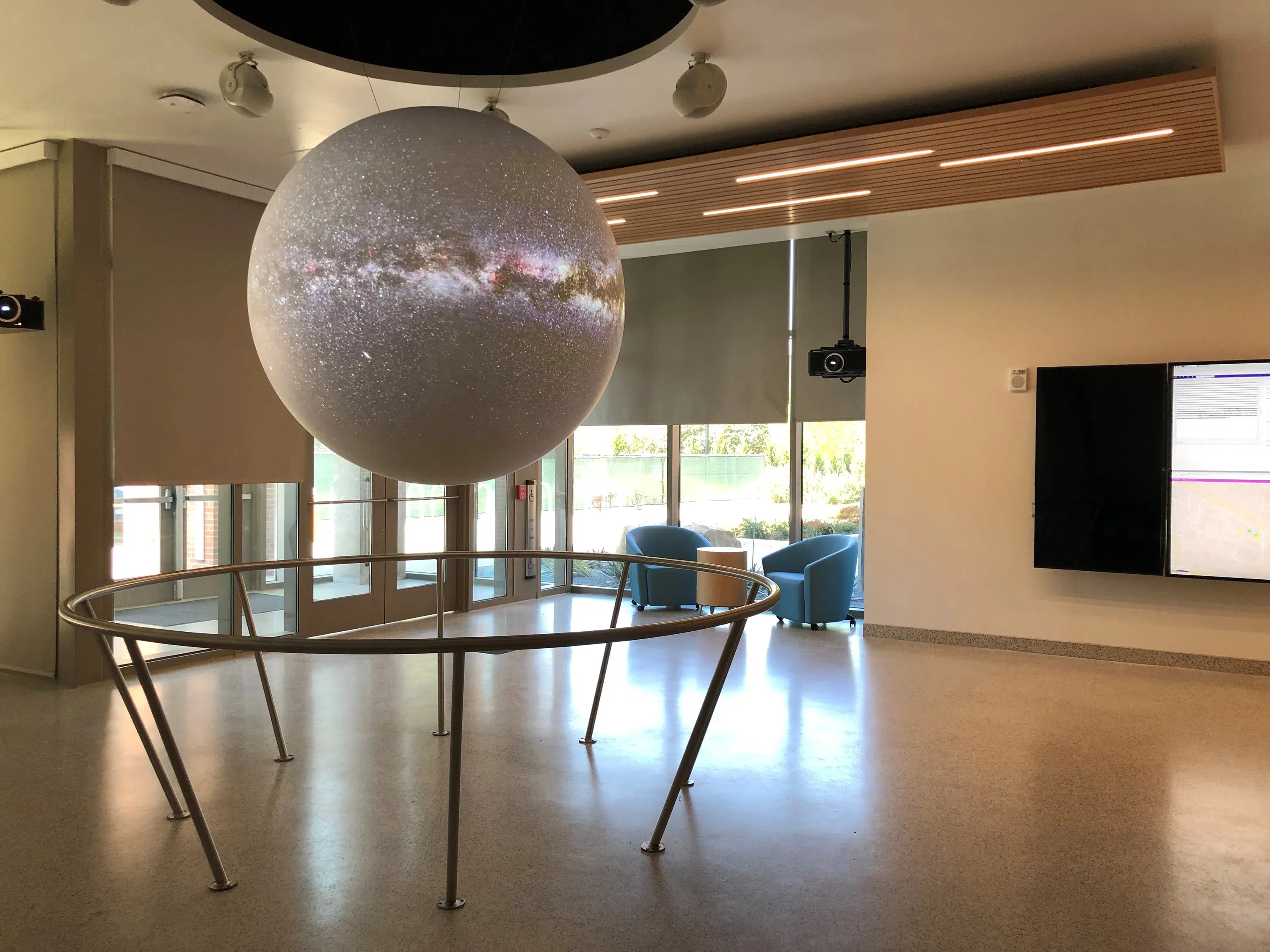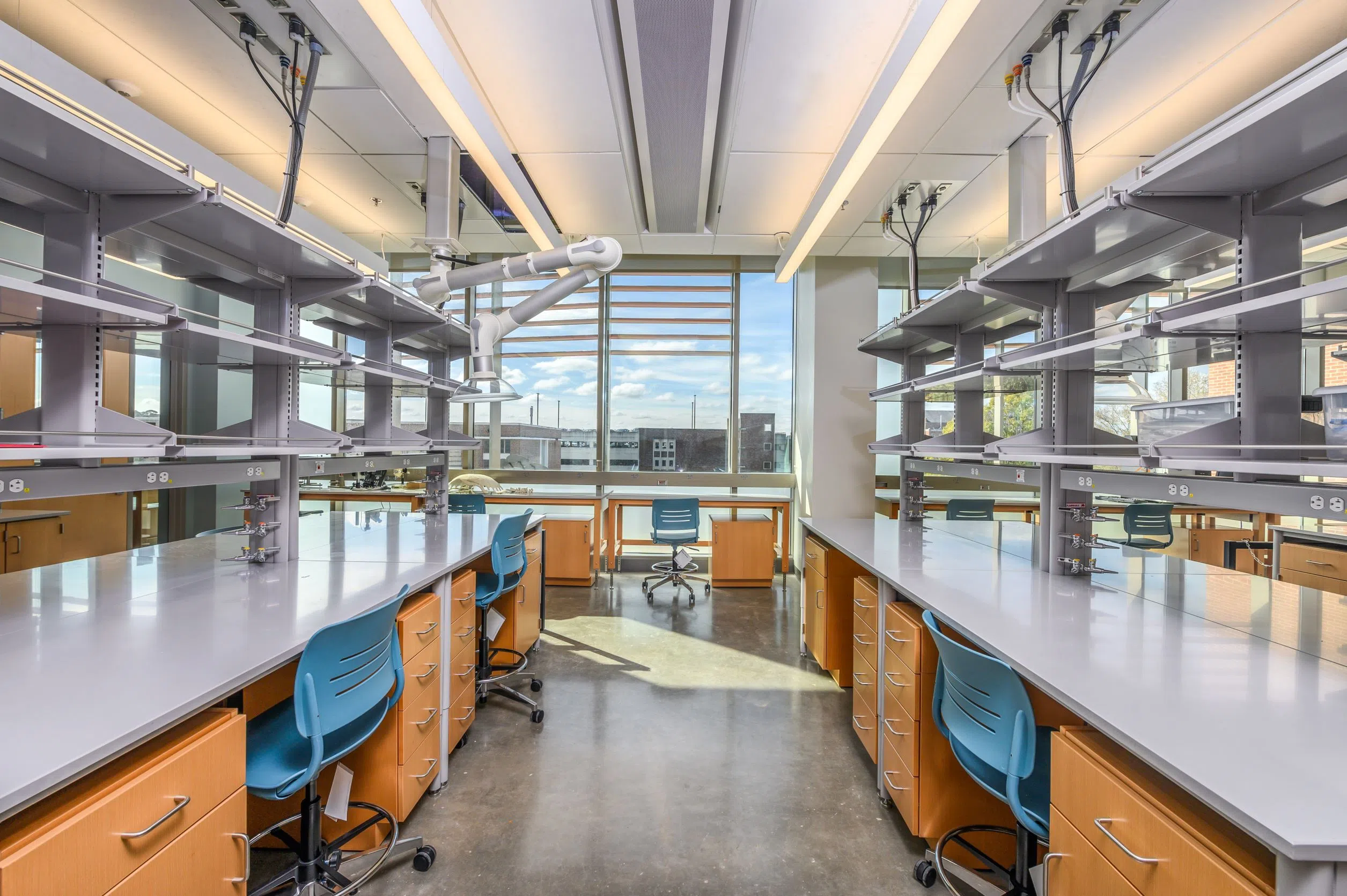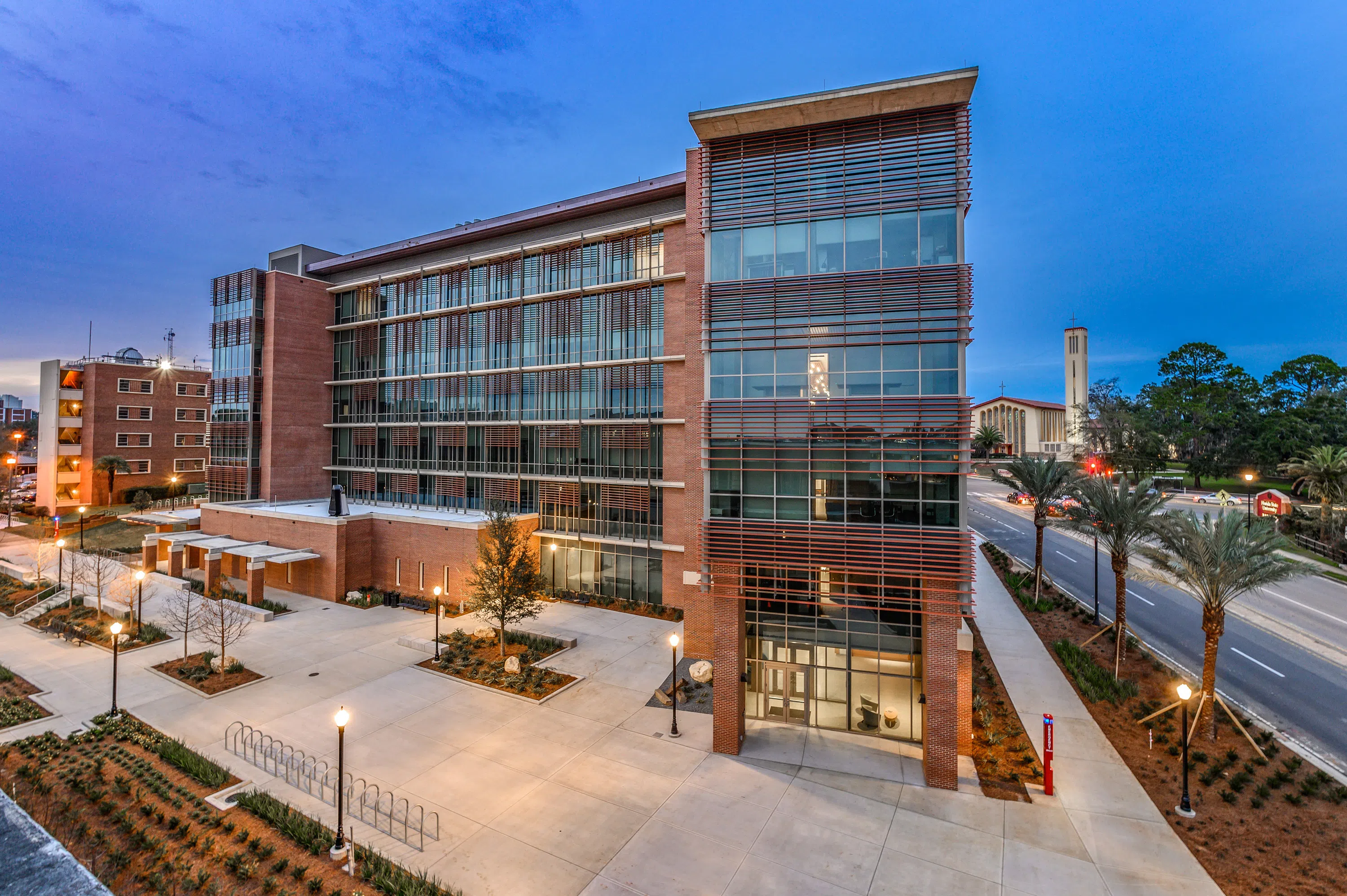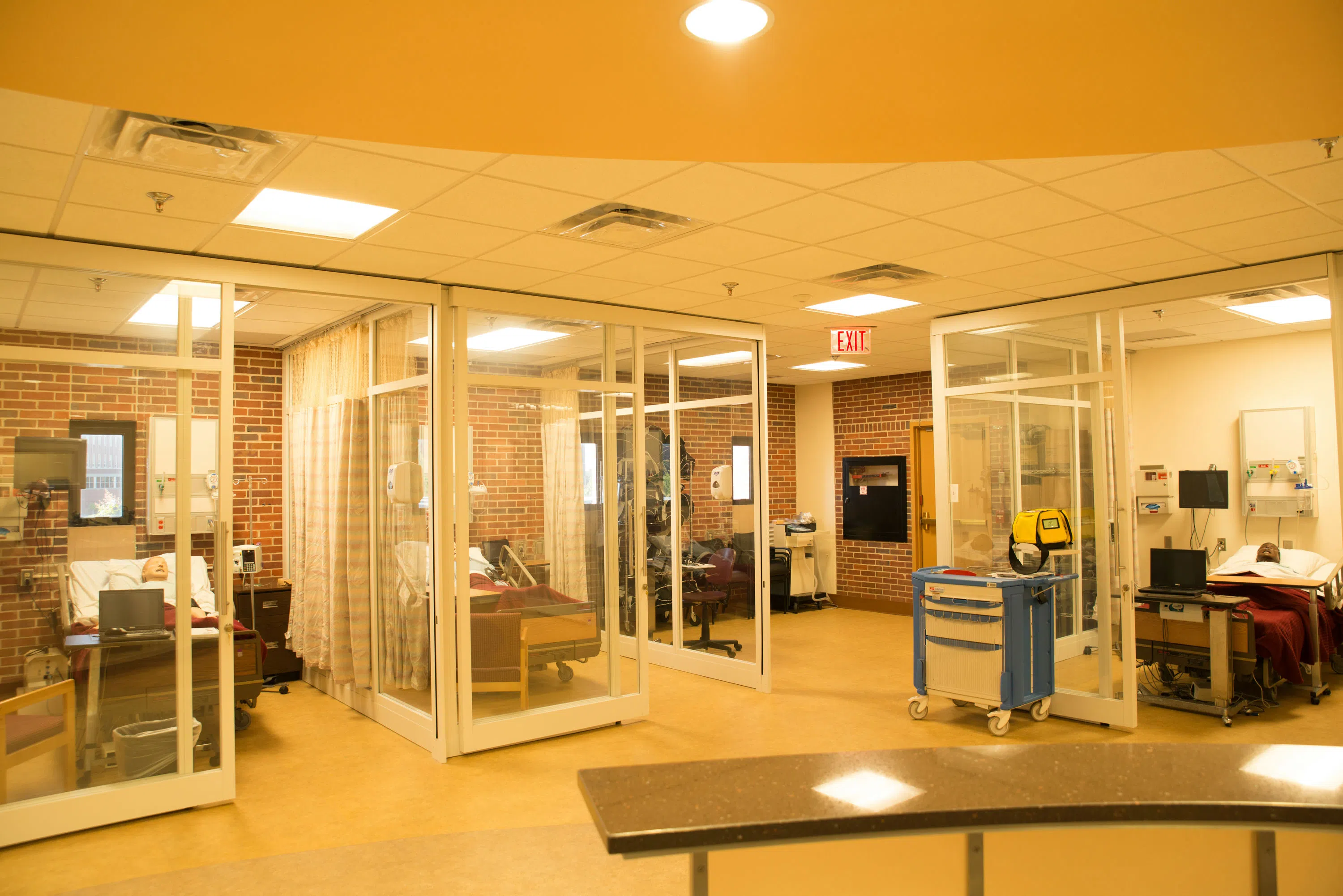Media Gallery
⭐ Department of Earth, Ocean & Atmospheric Science (EOAS )
The Department of Earth, Ocean, and Atmospheric Science (EOAS) moved into a brand-new building in February 2020. FSU students and faculty in environmental science, geology, meteorology and oceanography will now study, learn and conduct research in the 130,500-square-foot space, which includes 23 research labs and eight teaching labs, a broadcast studio for meteorology students, a 280-seat auditorium and a 100-seat active learning classroom. At seven stories, the new building has overtaken Doak Campbell Stadium as the highest point on campus and now towers over Tennessee Street at FSU’s Woodward Avenue entrance.
EOAS combines the previous Departments of Geology, Oceanography, and Meteorology. With this merger, completed in 2010, Florida State University seeks to enhance teaching and research across disciplines concerned with our planet. Central tasks of EOAS are to offer excellent education in earth, ocean and atmospheric science, to contribute to scientific knowledge by conducting world‐class research, and to be a source of information for the public and decision makers. The department expands its efforts in classroom education by offering undergraduate degrees in environmental sciences with a strong interdisciplinary core.
To offer the best education, we emphasize that faculty personally teach and mentor students, thereby maintaining close contact between faculty and students. EOAS faculty are resolute in the belief that their science plays an essential role in the life of the University and the education of tomorrow’s leaders. They are committed to expanding and strengthening that role. EOAS faculty are also committed to offering students rigorous field‐camps, research cruises, and internships; experiences that are essential to a rounded education. EOAS retains excellence in its established areas of research with vigorous recruitment of highly qualified graduate students and faculty.
The merged EOAS department recognizes an opportunity for fresh thinking and creative collaboration. For example, EOAS faculty foresee exciting new thrust in increasingly important systems approach reflecting that earth, ocean and atmosphere processes are coupled. The EOAS faculty is well positioned for broadly competitive funding and for developing research centers focused on emerging issues, thereby supporting the University’s strategic goals.
The Department will continue with the University to offer the public beyond its campus rigorous scholarship on matters of immediate social concern. Finding solutions for a sustainable future requires fluency in complex issues and objective reasoning based on the latest research results. In the coming decades, EOAS will serve the state, nation, and world by graduating highly competent professionals who will play crucial roles in this vital effort. Its faculty will provide scientific leadership by securing funding for cutting‐edge research and publishing enduring scientific results, and teaching and mentoring students through innovative courses and research experience.
EOAS combines the previous Departments of Geology, Oceanography, and Meteorology. With this merger, completed in 2010, Florida State University seeks to enhance teaching and research across disciplines concerned with our planet. Central tasks of EOAS are to offer excellent education in earth, ocean and atmospheric science, to contribute to scientific knowledge by conducting world‐class research, and to be a source of information for the public and decision makers. The department expands its efforts in classroom education by offering undergraduate degrees in environmental sciences with a strong interdisciplinary core.
To offer the best education, we emphasize that faculty personally teach and mentor students, thereby maintaining close contact between faculty and students. EOAS faculty are resolute in the belief that their science plays an essential role in the life of the University and the education of tomorrow’s leaders. They are committed to expanding and strengthening that role. EOAS faculty are also committed to offering students rigorous field‐camps, research cruises, and internships; experiences that are essential to a rounded education. EOAS retains excellence in its established areas of research with vigorous recruitment of highly qualified graduate students and faculty.
The merged EOAS department recognizes an opportunity for fresh thinking and creative collaboration. For example, EOAS faculty foresee exciting new thrust in increasingly important systems approach reflecting that earth, ocean and atmosphere processes are coupled. The EOAS faculty is well positioned for broadly competitive funding and for developing research centers focused on emerging issues, thereby supporting the University’s strategic goals.
The Department will continue with the University to offer the public beyond its campus rigorous scholarship on matters of immediate social concern. Finding solutions for a sustainable future requires fluency in complex issues and objective reasoning based on the latest research results. In the coming decades, EOAS will serve the state, nation, and world by graduating highly competent professionals who will play crucial roles in this vital effort. Its faculty will provide scientific leadership by securing funding for cutting‐edge research and publishing enduring scientific results, and teaching and mentoring students through innovative courses and research experience.
